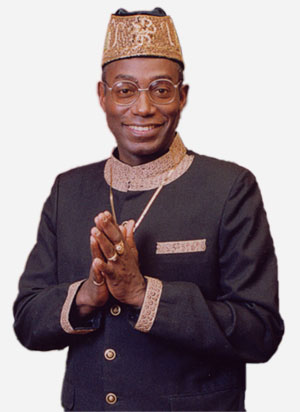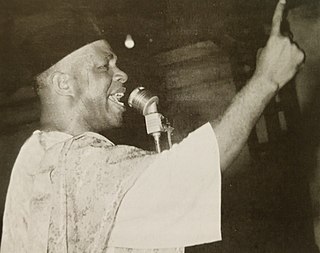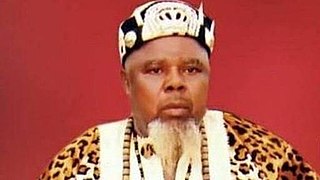
Diomedes or Diomede is a hero in Greek mythology, known for his participation in the Trojan War.

Trial by ordeal was an ancient judicial practice by which the guilt or innocence of the accused was determined by subjecting them to a painful, or at least an unpleasant, usually dangerous experience. In medieval Europe, like trial by combat, trial by ordeal, such as cruentation, was sometimes considered a "judgement of God" : a procedure based on the premise that God would help the innocent by performing a miracle on their behalf. The practice has much earlier roots, attested to as far back as the Code of Hammurabi and the Code of Ur-Nammu.

The Igbo people are an ethnic group in Nigeria. They are primarily found in Abia, Anambra, Ebonyi, Enugu, and Imo States. Ethnic Igbo populations are found in Cameroon, Gabon, and Equatorial Guinea, as migrants as well as outside Africa. There has been much speculation about the origins of the Igbo people, which are largely unknown. The Igbo people are one of the largest ethnic groups in Africa.
Anaang is an ethnic group in Southern Nigeria, whose land is primarily within 8 of the present 31 Local Government Areas in Akwa Ibom State: Abak, Essien Udim, Etim Ekpo, Ika, Ikot Ekpene, Obot Akara, Oruk Anam, Ukanafun in Akwa Ibom State. The Anaang are the second largest ethnic group after the Ibibios in Akwa Ibom state.
Arochukwu Local Government Area, sometimes referred to as Arochuku or Aro Oke-Igbo, is the third largest local government area in Abia State in southeastern Nigeria and homeland of the Igbo subgroup, Aro people.

Bhakti Tirtha Swami, previously called John Favors and Toshombe Abdul and also known by the honorific Krishnapada, was a guru and governing body commissioner of the International Society for Krishna Consciousness. He was the highest-ranking African American in ISKCON.

Nnewi is a commercial and industrial city in Anambra State, southeastern Nigeria. It is the second largest city in Anambra state after Onitsha. Nnewi as a metropolitan area has two local government area, which are Nnewi North and Nnewi South, all centred around the Nnewi town. Even Ekwusigo local government area is now part of Nnewi urban area, as urbanization continues to spread from Nnewi to neighbouring communities. The Nnewi town which is the only town in Nnewi North, comprises four villages: Otolo, Uruagu, Umudim, and Nnewichi. Nnewi had been the centre of economics and commerce, being at a time the fastest growing industrial city east of the Niger, being the home of many industries such as The Ibeto Group, the Chicason Group, Cutix Cables, amongst others. The first indigenous car manufacturing plant in Nigeria is located in the city while the first wholly Made-in-Nigeria motorcycle, the 'NASENI M1' was manufactured in Nnewi.
The gender of God can be viewed as a literal or as an allegorical aspect of a deity.
Arondizuogu (Aro-ndizuogu) is a town inhabited by the Aro people, an Igbo subgroup in Imo State of Nigeria. The Arondizuogu community is believed to have migrated from Arochukwu in the present Abia State to their current settlements in Imo State, which include the Okigwe, Ideato North and Onuimo local governments.
The Saxon Stories is a historical novel series written by Bernard Cornwell about the birth of England in the ninth and tenth centuries. The series consists of 13 novels. The protagonist of the series is Uhtred of Bebbanburg, born to a Saxon lord in Northumbria. He is captured as a child and raised by a Danish warlord. Uhtred, despite his inclination otherwise, repeatedly fights and schemes to bring about Alfred the Great's dream of uniting all English speakers in one realm over the course of a long life.
Chief Izuogu Mgbokpo of Amankwu, Arochukwu was an 18th-century warrior in the Aro Confederacy. He was a slave trader and commander who fought his most famous battle on Ikpa Ora. Chief Izuogu and his ally, Chief Iheme, were the founders of the kingdom of Arondizuogu, of which Chief Izuogu is believed to be the first king. It is said he founded the town by war and settled in a place very close to Ikpa Ora. He remains a hero to the Aro people.
Chief Iheme of Isi-Akpu Nise near Awka was a chief apprentice of Maazi Izuogu Mgbokpo. He helped defeat the Ikpa Ora people and was one of the founding fathers of Arondizuogu. His people later migrated to the kingdom.

Kingsley Ozumba Mbadiwe (1915–1990) was a Nigerian nationalist, politician, statesman, and government minister in the Nigerian First Republic and a Biafran Roving ambassador during the civil war.
Dualism or dualistic cosmology is the moral or belief that two fundamental concepts exist, which often oppose each other. It is an umbrella term that covers a diversity of views from various religions, including both traditional religions and scriptural religions.
Atheism, in the broadest sense, is an absence of belief in the existence of deities. Less broadly, atheism is a rejection of the belief that any deities exist. In an even narrower sense, atheism is specifically the position that there are no deities. Atheism is contrasted with theism, which is the belief that at least one deity exists.
Classical Hindu law in practice originates from community, not a state polity. In this way, particular groups of society began to gain influence in the creation and administration of law. Primary corporate groups, Kingships, and Brahmins were the factions, which conveyed Hindu jurisprudence in practice. Corporate groups were responsible for legislating law through the conception of social norms; kingships were responsible for the administration of punishment and the worldly Hindu system; and Brahmins were responsible for ritual, penance, and the maintenance of a spiritual Hindu system.
The Umuoji people are those whose roots can be traced to the town of Umuoji in Idemili North, a local government area in Anambra State, Nigeria. These people are from Igbo-speaking ethnic group whose early history is adversely affected by a lack of, or non-existent, written records. Umuoji is bounded by Ogidi, Ojoto, Uke, Abatete and Nkpor and has an estimated population of 80,000 people which includes local residents in its 23 villages and citizens in diaspora.

Mazi Mbonu Ojike was a Nigerian nationalist and writer. He advanced from a choirmaster, organist, and teacher in an Anglican school to become a student in America and then a cultural and economic nationalist. He was the Second Vice President NCNC and Deputy Mayor of Lagos in 1951. Ojike was known as the "boycott king" for his slogan, 'boycott the boycottables'. In America, he spent 8 years involved in intellectual pursuit and improving outsiders’ knowledge of Africa speaking from an African perspective. Upon his return, he promoted his brand of Africanisation, a persistent consumption of African forms of cloths, food, dress, religion and dances while also believing in the selective benefits of foreign amenities. Ojike made common the use of the word Mazi as a substitute for Mr.

Pericomo Damian Azubike Nwankwo Okoye, known as Pericoma, was a Nigerian singer, songwriter and traditionist. In addition to his music, he was known as a practitioner of Odinala, the traditional religion of the Igbo people.
Ndoro is a town in Oboro, Ikwuano Local Government Area of Abia State, Nigeria. It is about 16 km southeast from the state capital, Umuahia and is located along the Umuahia-Ikot Ekpene Road.







